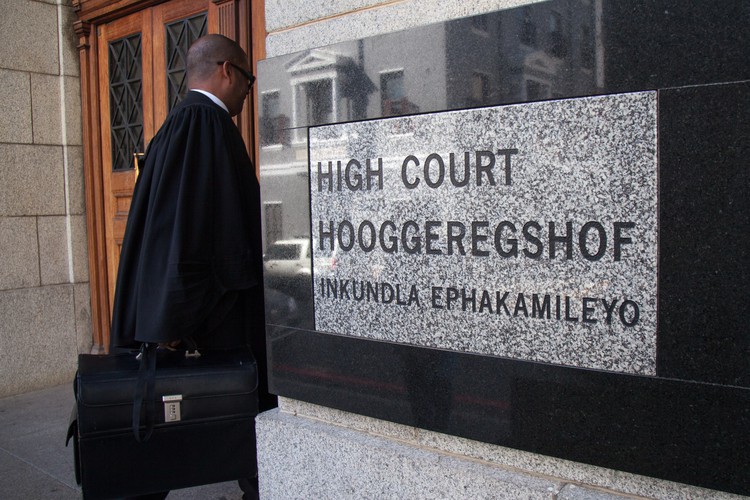Judge Hlophe fails to explain why judgments are extremely late
Sixteen judgments at the Cape High Court have been outstanding for more than half-a-year. Six have been outstanding since 2016.
Judges are supposed to deliver their judgments within three months of the end of hearings. Yet sixteen judgments at the Western Cape High Court have been outstanding for over six months.
It is an ongoing problem at the court. In December GroundUp reported that 11 judgments were late. Then, as now, the Judge President of the Western Cape High Court, John Hlophe, failed to respond to our queries to explain why this was happening.
The late judgments have been outstanding (reserved in judicial terminology) since at least 30 November 2017. One, by Acting Judge Nolita Kose, has been outstanding since 29 July 2016. Acting Judge Kose has nine late judgments. In December she had six late judgments. Judges Nathan Erasmus and Siraj Desai, and Acting Judge Keith Engers each have two late judgments. Judge Lee Bozalek has one late judgment.
Only one judge responded directly to our request for comment. Judge Bozalek wrote that he greatly regrets that his judgment has been outstanding for more than six months. He intends to deliver the judgment in August after the mid-year recess.
Acting Judge Engers passed our request for comment to Elmarie Sievers, who works for Deputy Judge President Patricia Goliath.
“The Heads of Court are keenly aware of the need to deliver judgments as soon as possible, and they monitor the outstanding judgments on an on-going basis. Every reserved judgment has to be listed, and these lists are updated and circulated weekly, not only to judges, but to the legal fraternity as a whole and other interested parties,” wrote Sievers. “Attorneys and litigants are encouraged to notify the Judge President or Deputy Judge President in order to bring pressure to bear on judges with long outstanding judgments.”
We also asked Chief Justice Mogoeng Mogoeng for comment but his office referred our questions to Judge Hlophe.
Our six-month lateness measure is a generous one. According to norms laid out for judges in 2014 by Chief Justice Mogoeng Mogoeng, judges should hand down their judgments “no later than three months after the last hearing”.
Advocate Ismail Jamie, chairperson of the Cape Bar, described the situation as “unacceptable”. He said it had been raised at the last Bar council meeting. Jamie said he had been in contact with the Judge-President. “We’ve offered to make senior members of the Bar available on a pro bono [free of charge] basis to write the [late] judgments, if the parties are amenable,” he told GroundUp. He said this may involve having to rehear cases, especially if they were trials, as opposed to applications (which are determined mainly by written argument).
We asked Judge Hlophe, by email, what steps he has taken to deal with the late judgments, and why Acting Judge Klose continued to be assigned cases when she had so many late judgments. We have confirmed that our email was brought to his attention. He did not reply.
Judge Hlophe has been involved in numerous controversies, including the extremely late delivery of a vital judgment. A 2007 Mail & Guardian article states:
“In a 2004 case between Health Minister Manto Tshabalala-Msimang and the pharmaceutical industry, Hlophe was accused of ‘unreasonably’ delaying his judgment on leave to appeal. When it was finally delivered, his ruling was overturned by the Supreme Court of Appeal and not reinstated by the Constitutional Court. Reacting to the ruling, Hlophe said: ‘I couldn’t care less.’ A complaint about his conduct was laid with the Judicial Service Commission.”
On 2 July Judge Hlophe will face a Judicial Conduct Tribunal for allegedly attempting to influence Constitutional Court judges in a case involving Jacob Zuma.
List of Western Cape High Court reserved judgments as of 21 June 2018
Support independent journalism
Donate using Payfast

Don't miss out on the latest news
We respect your privacy, and promise we won't spam you.
Next: Blikkiesdorp residents frustrated by housing delays
Previous: Hout Bay roads blocked in taxi tiff
© 2018 GroundUp.
This article is licensed under a Creative Commons Attribution-NoDerivatives 4.0 International License.
You may republish this article, so long as you credit the authors and GroundUp, and do not change the text. Please include a link back to the original article.

